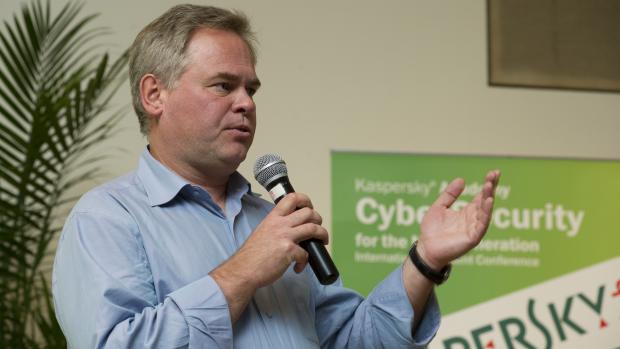Eugene Kaspersky Talks Cyber Threats, the Future of Security

Eugene Kaspersky, co-founder and current CEO of one of the world’s largest IT security companies, Kaspersky Lab (KL), is a worried man – and he thinks students at the Polytechnic Institute of New York University (NYU-Poly) can help. His mission, simply, is to “save the world” – from growing vulnerabilities from cyber-sabotage, cyber-terrorism and even cyber-war.
“We live in digital world, a cyber-world, and these systems are all around us, unfortunately they are very vulnerable, we live in a very vulnerable world,” he told an audience of students and industry professionals during the school’s recent CyberSecurity Awareness Week (CSAW), of which the Kaspersky event was a part.
Some possible future scenarios scare him so much, he prefers not to talk about them. The subject of cyber-terrorism, for instance, was forbidden at his company, that is until the film, Die Hard 4 (released in the US as Live Free or Die), broke the seal on the subject for the popular imagination grossing nearly $400 million along the way. After that embargo-busting, Kaspersky said: “I said thank you Hollywood, you opened my mouth.”
Since then, in near-incessant globe-trotting he warns audiences of mushrooming cyber threats from bad actors and even states tempted by seemingly low-risk cyber-subterfuges – while issuing an ardent call to arms for more IT security experts. Hence his presence at NYU-Poly.
“We’re here to save the world, to save cyberspace and to help you, [the] university, to have more students graduate as IT security experts,” he told a morning session on a day when other KL experts also presented, including Roel Schouwenberg, a senior U.S.-based anti-virus researcher who described 2012 as the ‘year of cyberwarfare’ when governments spoke, openly for the first time, of offensive capabilities.
Such a charged environment means “there is a very high demand for IT security engineers – in the future it will get even worse,” continued Kaspersky, who currently employs some 2,300 such specialists. “So the bad news for governments, enterprises, companies is very good news for IT security engineers.”
The executives’ presence on campus also serves the company’s constant need to find new talent, to add to the ranks of engineers employed in offices in nearly 30 countries. KL products protect over 300 million systems - in some 200,000 companies (and some government agencies) – worldwide. Targeted recruiting is also the function of the annual international student papers competition Kaspersky sponsors – this year entitled: ‘CyberSecurity for the Next Generation 2013’. Since launching last year, the North American Cup is held in partnership with NYU-Poly, where Kaspersky is convinced some of the industry’s future leaders are being nurtured.
“We think that there are people sitting right in this room who are going to help shape the IT security industry,” said Steve Orenberg, president of KL North America, which his based in Woburn, Massachusetts. “We, sometimes, internally, think of this (CSAW) event as the ‘Black Hat’ of tomorrow. You might know names like Charlie Miller and Dan Kaminsky – these are some of the most recognizable names as far as security researchers go – and maybe the next Charlie or Dan really might be in this room today.” More broadly he explained: “By partnering with universities like NYU-Poly we really want to stay at the forefront of IT security.”




